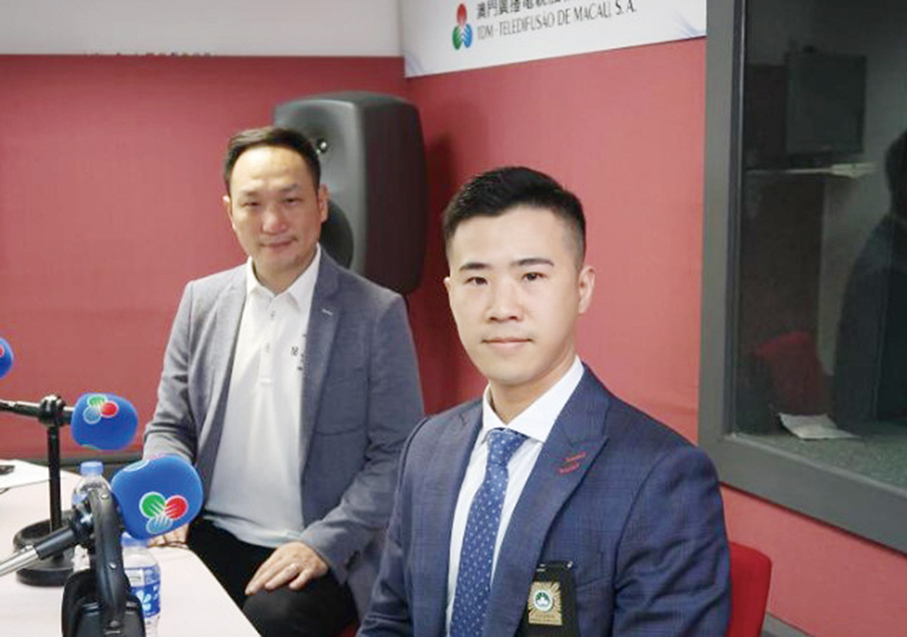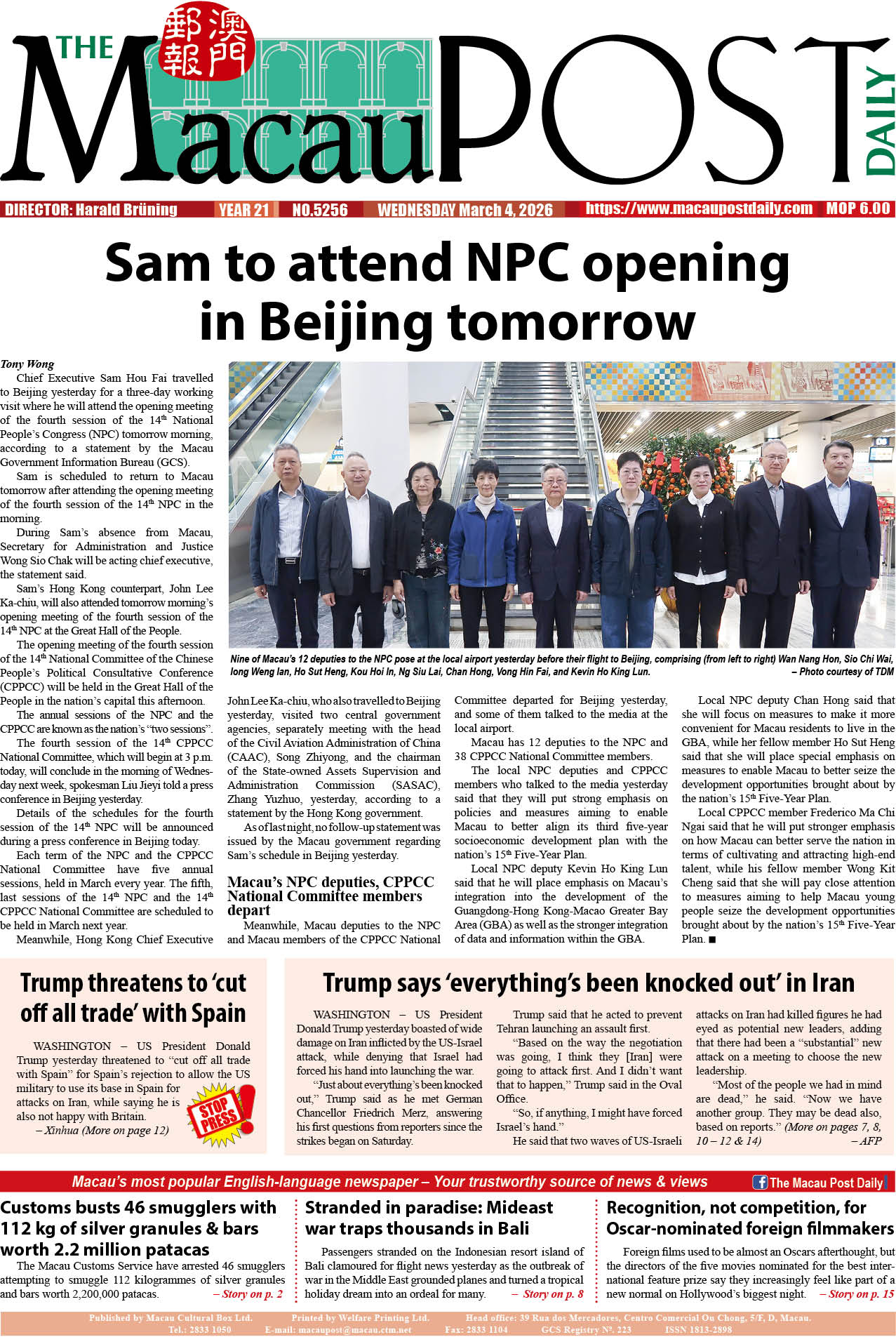Judiciary Police criminal investigator Cheong Un Hong said yesterday that a total loss of 320 million patacas was recorded due to fraud last year, 90 percent of which came from telephone and investment frauds, highlighting that the public’s awareness of fraud prevention is still weak.
Cheung made the remarks when attending a current affairs phone-in programme hosted by Ou Mun Tin Toi yesterday, the Chinese-language radio channel of public broadcaster TDM.
Cheung pointed out that in the first two months of this year, there were 81 cases of telephone fraud and 126 cases of internet fraud, with students accounting for 45 percent and 35 percent of the victims respectively, both of which have increased year-on-year.
Cheung also mentioned that between September last year and early March this year, the Judiciary Police (PJ) cracked 37 cases of telecommunication fraud together with the Zhuhai public security authorities, involving two million yuan, of which 300,000 yuan have meanwhile been returned to the victims’ accounts.
Cheung said that the police launched an anti-cyber fraud WeChat Mini Programme earlier this month to enhance public awareness of fraud prevention, in which the “Fraud Finder” function was used an average of 1,700 times a week, while the “Fraud Reporting” function was used about 60 times per week.
Cheung said yesterday that he had noticed the increasing number of cases involving artificial intelligence (AI) deep-fake technology in neighbouring regions, which produces fraudulent videos, although Macau has not yet received any reports of this kind of fraud.
Cheung reminded the public that AI technology is “not that perfect” for the time being, and if members of the public suspect that they are being defrauded during video chatting, they should ask the suspected scammer about personal matters to verify their identity.
Macao New Chinese Youth Association (MNCYA) Vice President Lao Cho Chon said at the phone-in programme that AI technology could simulate the appearance and voice of a person, urging the public to pay more attention to the authenticity of video calls.
Lau said he believed that young people and university students who tend to be quite familiar with the use of technology are more trusting of emerging technologies, easily believe inaccurate information, and do not have a good understanding of cyber fraud, which targets them and makes it easy for them to fall prey to fraudsters.

Judiciary Police criminal investigator Cheong Un Hong (right) and Macao New Chinese Youth Association (MNCYA) Vice President Lao Cho Chon attend yesterday’s current affairs radio phone-in programme at the Chinese-language radio channel of public broadcaster TDM. – Photo courtesy of TDM






